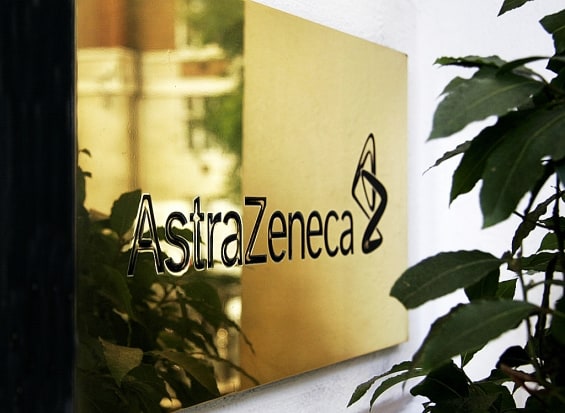
AZ begins late-stage trial of new cancer drug
pharmafile | October 22, 2013 | News story | Research and Development, Sales and Marketing | AstraZeneca, Cancer, NSCLC, selumetinib
AstraZeneca has begun a Phase III study for its investigational lung cancer pill selumetinib in patients with a genetic sub-type of the disease.
The study is known as SELECT-1 and is testing the selective MEK inhibitor drug with chemotherapy agent docetaxel, as a second-line therapy in patients with advanced or metastatic non-small-cell lung cancer (NSCLC) whose tumours are KRAS mutation-positive.
The trial is designed to evaluate progression free survival (PFS) and overall survival (OS), the golden endpoint in oncology studies.
AZ said that SELECT-1 will be the ‘largest prospective study ever conducted’ in this patient population, a genetic sub-type of lung cancer associated with poor prognosis and limited treatment options.
The firm’s decision to put selumetinib into Phase III studies for NSCLC follows on from Study 16 results, a randomised Phase II trial evaluating the combination of selumetinib with standard of care docetaxel against docetaxel alone in KRAS-mutation positive NSCLC.
This trial showed a high and durable response rate of 37.2% versus 0%, which was deemed a statistically significant improvement in PFS of 5.3 months versus 2.1 months.
AstraZeneca acquired exclusive worldwide rights to selumetinib from Array BioPharma in 2003.
Antoine Yver, VP and head of oncology in AstraZeneca’s Global Medicines Development unit, said: “To our knowledge, SELECT-1 will be the first Phase III study to investigate whether a MEK inhibitor in combination with chemotherapy is superior to chemotherapy alone in KRAS mutation positive advanced or metastatic non-small cell lung cancer.
“This is an area of pressing clinical need, and our decision to progress selumetinib was based on Phase II results, which showed promising clinical activity in this group of patients.”
MEK is part of the MAPK pathway which is frequently activated in cancer, and is elevated in many different solid tumour types, including those featuring the KRAS mutation that is present in 20% of human cancers and around 20 to 30% of all NSCLC tumours.
MEK inhibitors are already on the market but primarily for deadly skin cancers – earlier this year GlaxoSmithKline’s MEK inhibitor trametinib gained a new licence to treat late-stage melanoma.
Because of its potential to treat other solid tumours, AstraZeneca is also investigating the potential for selumetinib in several other types of MEK-dependent cancers.
This includes a Phase II study assessing the efficacy of selumetinib combined with radioactive iodine as adjuvant therapy in patients with differentiated thyroid cancer with high risk of recurrence, that started in August.
A further Phase II study assessing the clinical efficacy and tolerability in combination with dacarbazine in patients with metastatic uveal melanoma is also planned to start later this year.
AstraZeneca already markets Iressa for NSCLC, but specifically for patients expressing locally advanced or metastatic NSCLC with activating mutations of EGFR. The ageing drug made over $600 million last year but competes with Roche’s NSCLC drugs Tarceva and Avastin for market space.
Ben Adams
Related Content

AstraZeneca shares results from phase 3 TROPION-Lung01 trial
AstraZeneca has announced results from the phase 3 TROPION-Lung01 trial of AstraZeneca and Daiichi Sankyo’s …

OSE Immunotherapeutics and Boehringer Ingelheim collaborate on cancer and cardio-renal-metabolic disease treatments
OSE Immunotherapeutics and Boehringer Ingelheim have announced a major expansion of their existing partnership. The …

Nona Biosciences announced agreement with AstraZeneca for tumour targeted therapies
Nona Biosciences and AstraZeneca have announced that the two companies have entered into a license …








